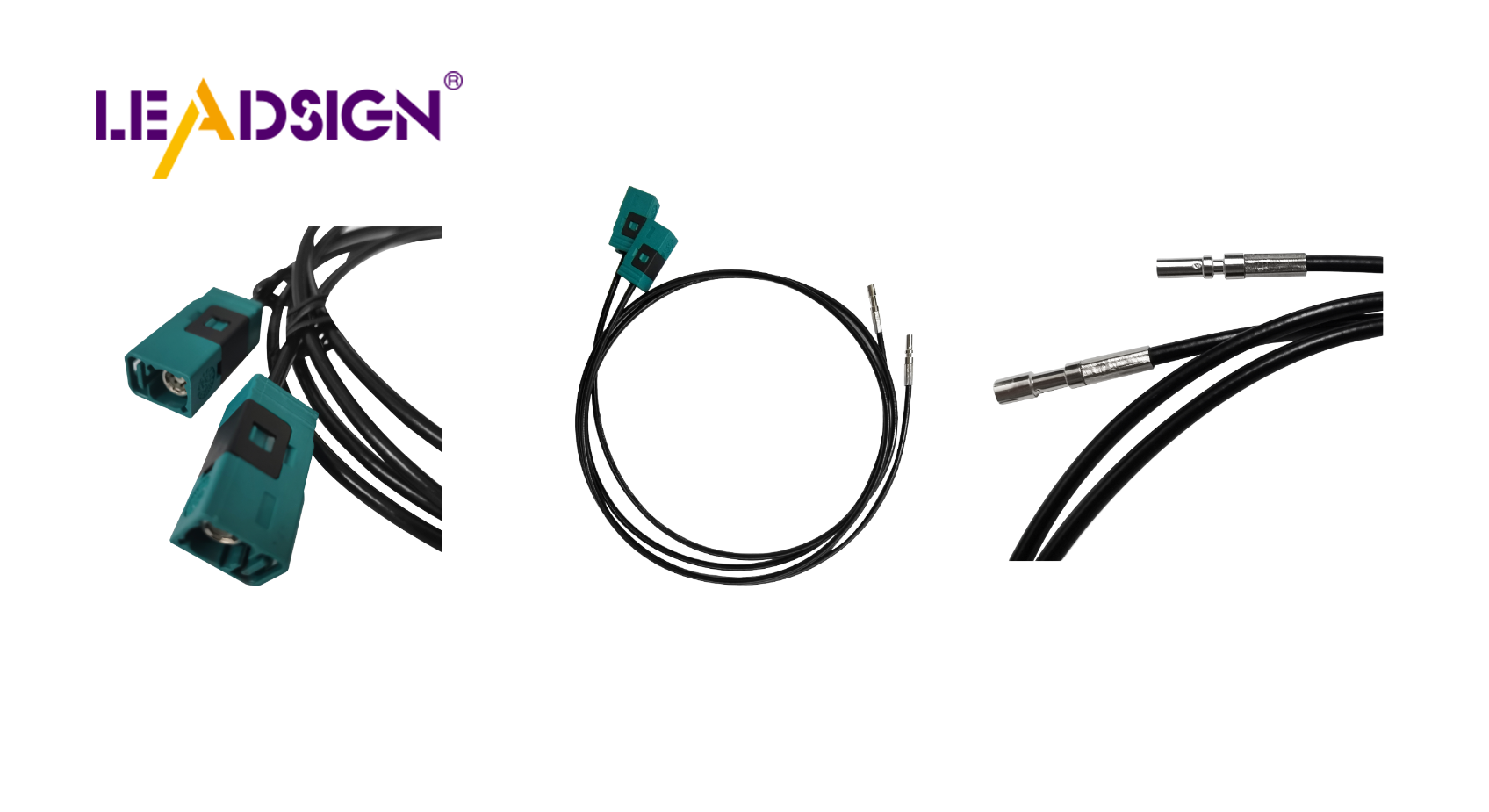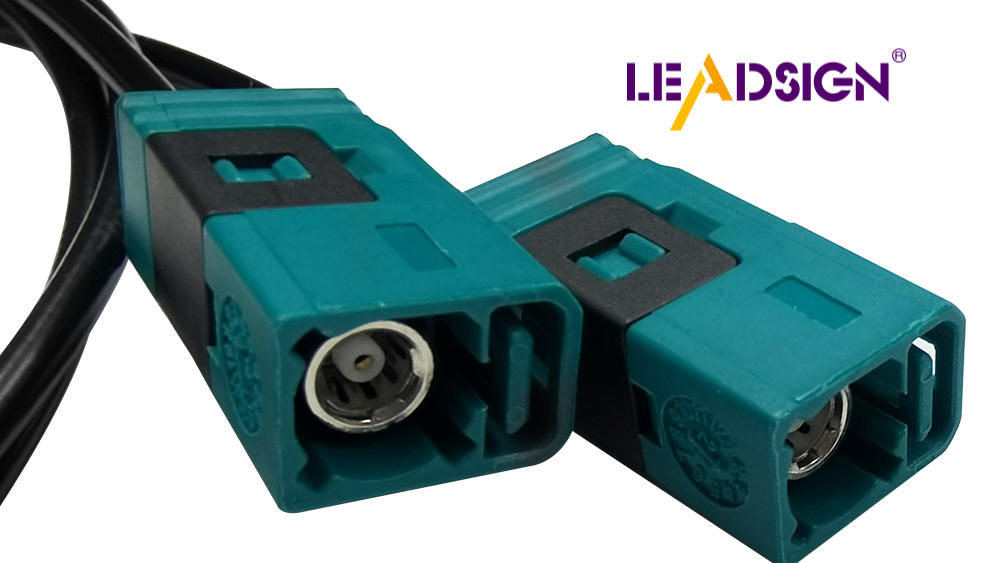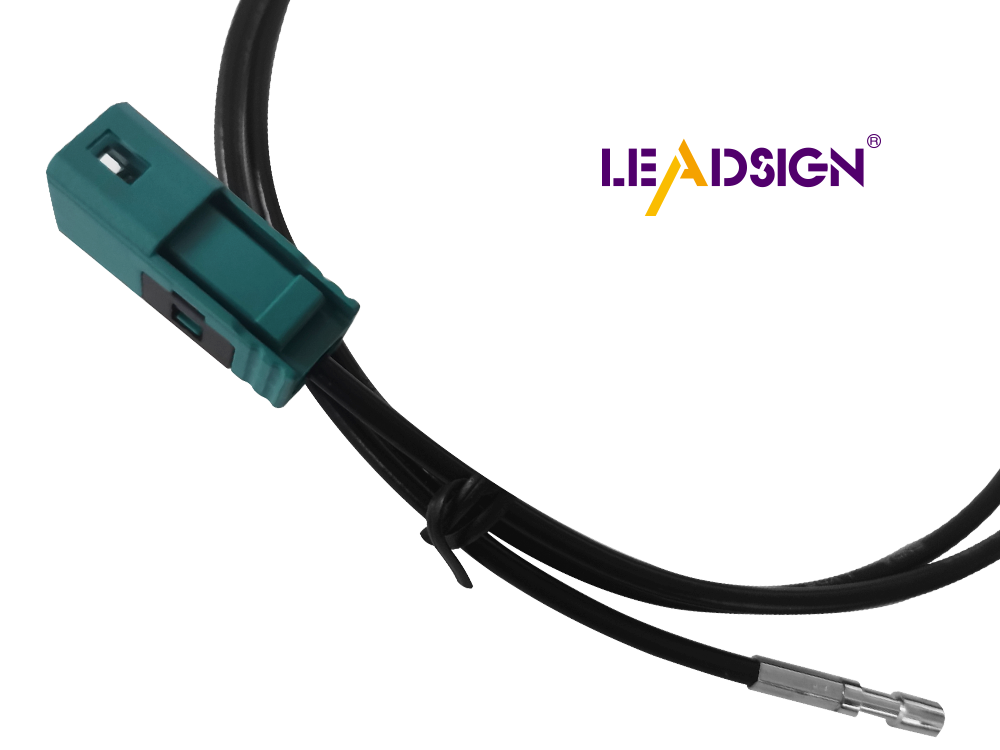Tips for Choosing Automotive Electrical Connectors Types

Selecting the appropriate automotive electrical connectors types is crucial for maintaining the optimal performance and safety of your vehicle. These connectors play a vital role in ensuring the proper transmission of power and signals within the car's systems. By understanding the different types of connectors available, car owners can make informed decisions to enhance the functionality and reliability of their vehicles.
Understanding Automotive Electrical Connectors
Definition and Function
What are automotive electrical connectors?
Automotive connectors are key parts in cars. They join different electric systems together. These connectors let electricity and signals move between car parts. They come in many shapes and sizes for special uses in a car. By keeping connections tight, they help the car work well.
How do they function in vehicles?
In cars, connectors give a steady path for electricity and signals. They link wires to things like sensors, lights, and controls. This makes sure each part gets power and info to work right. Without good connectors, car systems might stop or fail, causing safety risks.
Importance of Connectors in Automotive Systems
Ensuring reliable power transmission
Good power flow is needed for a car to run smoothly. Connectors are important because they link power sources to parts safely. They stop power loss so each part works best. Studies show the right connectors boost system work and cut down on failures.
Maintaining signal integrity
Signal strength is key for systems to talk correctly in a car. Connectors keep this strength by making data links stable. They make sure signals go where needed without problems. This is vital for engine control and safety features to work well. Picking good connectors can make cars safer and better. signal integrity
Types of Automotive Electrical Connectors

Knowing different automotive electrical connectors types helps pick the right one. Each type has its own features, good points, and bad points that affect how well it works in cars.
Blade Connectors
Features and uses
Blade connectors, also called spade connectors, have a flat metal piece. This fits into a matching slot. They are used in cars to connect wires to things like speakers and lights. Their design makes them easy to connect and disconnect quickly.
Good and bad points
Good Points:
Simple to attach and remove
Easy to find and cheap
Works for low or medium power needs
Bad Points:
Not good for places with lots of shaking
Can’t handle as much power as other connectors
Pin Connectors
Features and uses
Pin connectors have pins that fit into sockets. They are used in engine systems, sensors, and lights. These keep connections safe and steady, which is important for signals in car systems.
Good and bad points
Good Points:
Keep connections safe
Good for tight spaces
Keep signals strong
Bad Points:
Harder to set up than blade connectors
Cost more because they are complex
Butt Connectors
Features and uses
Butt connectors are round parts that join two wires end-to-end. They are used when fixing or changing car wires. These make sure electricity flows smoothly without stopping.
Good and bad points
Good Points:
Easy for joining wires
Strong connection
Best for setups that stay put
Bad Points:
Not good if you need to unplug often
Need special tools to put on
Picking the right automotive electrical connectors types is key for cars working well. By looking at what each job needs, like weather or power use, you can choose the best connector for safety.
Ring and Spade Connectors
What They Are and How They're Used
Ring and spade connectors are important in cars. They have metal ends shaped like rings or spades. These fit tightly on bolts or screws. This makes them great for places where you need a strong connection.
Where They're Used:
Battery Ends: Ring connectors hook to battery ends. They stay tight even if the car shakes.
Grounding Spots: Spade connectors help keep car systems safe by grounding them.
Car Lights: Both types connect lights in cars, making them last long and easy to set up.
Good and Bad Things About Them
Knowing what’s good and bad about these connectors helps pick the right one for your car.
Good Things:
Strong Hold: Their shape keeps them from coming loose when the car moves.
Toughness: Made from strong stuff, they handle heat, cold, and wetness well.
Simple to Use: You only need basic tools to put them on, so anyone can do it.
Bad Things:
Not Easy to Remove: Once on, they’re hard to take off quickly, which isn’t good if you need to fix things often.
Need More Room: Because they use bolts or screws, they take up more space than other types. This might not work in small spots.
Choosing the right automotive electrical connectors types like ring and spade ones means thinking about what you need. Look at things like weather conditions, power needs, and how parts move. This way, your car will work safely and well.
Things to Think About When Picking Connectors
Picking the right automotive electrical connectors types means looking at many things. These help make sure connectors fit the car's needs and work well.
Weather Conditions
Hot and Cold Effects
Connectors need to handle the weather in cars. Changes in heat can change how they work. Hot weather might make them bigger, while cold can make them break easily. Wetness can rust them, stopping power and signals from moving well. So, picking connectors that deal with these is key for keeping them working.
Chemicals and Shaking
Cars go places with stuff like oil and fuel around. These can hurt connector parts over time. Also, engine shakes and road bumps can loosen them. Strong connectors that resist chemicals and shaking last longer.
Power Needs
Electricity Levels
Each type of connector has limits for electricity it can take. Knowing these stops too much power from breaking things. For example, Circular Connectors come in different sizes to fit power needs, keeping systems safe.
Signals Moving Right
Connectors keep signals strong in car systems. They must send data fast without losing it. Picking ones that match signal needs helps sensors work right.
Toughness Needs
Strength and Lasting Long
Connectors should be strong to last long. They need to handle being plugged in and out a lot without breaking. They also must stand up to hits or shakes.
Easy to Put In and Fix
Easy-to-use connectors save time when setting up or fixing things. They should be simple to reach during repairs so cars stay running smoothly.
By thinking about these points, people pick the best automotive electrical connectors types for their cars. This makes car systems safer and better overall.
Comparing Different Connector Types

How They Work and Last
How They Last in Different Situations
Different automotive electrical connectors types work differently over time. Circular connectors come in many sizes and pin setups. This makes them fit different electric needs. They are great where there's lots of shaking or bumps. They stay strong and keep power and signals moving well. They last long even when plugged in and out a lot. Other connectors might not handle tough conditions, which can cause problems.
Being Reliable When It Matters Most
In important car parts, being reliable is key. Connectors must handle the right current, voltage, and power without failing. Pin connectors are liked for engine control and sensors because they hold tight connections and keep signals clear. They make sure important parts get power and info without stopping, lowering the chance of issues. Picking the right connector for the system's needs stops overheating or big failures.
Price and How Easy to Get
Are They Worth the Money?
When thinking about cost, look at both buying price and how they last over time. Blade connectors cost less and are easy to find, so they're used for low to medium power jobs. But they might cost more later if they need fixing in shaky spots. Spending more on stronger ones like circular or pin types might cost more first but save money by needing fewer fixes.
Can You Find Them Easily?
How easy it is to find connectors depends on type and use. Common ones like blade or butt types are easy to get for most car needs. Special ones for high-tech uses might be harder to find but needed for things like GPS or music systems. Making sure you can easily get the connector stops delays in fixing or upgrading cars, keeping them working well.
Picking the right car connectors needs careful thought. First, know the different types like blade, pin, butt, and ring and spade connectors. Each has good and bad points that affect how they work. Also, think about weather, power needs, and how strong they must be. Check connectors for performance, reliability, cost, and how easy they are to find. This helps them fit what you need in your car. By looking at these things, people can choose better, making cars safer and work well.
See Also
Exploring the Significance of FAKRA Connectors in Cars
Benefits of FAKRA Printed Circuit Board Connectors in Autos
The Significance of Fakra Car Connectors in Today's Autos

